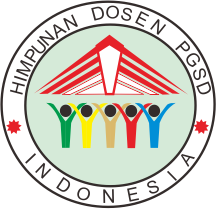Application Of Problem Based Learning Model Using Education For Sustainable Development Context In Improving Critical Thingking Ability For Junior High School Students At Heat Theory
DOI:
https://doi.org/10.30595/dinamika.v12i2.6354Keywords:
Problem Based Learning, Education for Sustainable Development, Critical Thinking Ability, Sustainability AwarenessAbstract
Indonesia ranks 6th from the bottom based on four annual studies Trends in International Mathematics and Science Study (TIMSS) in 2015. Based on the results of the TIMSS and PISA, it was said that Indonesian students only mastered low-level questions and lacked high-level questions (HOTS) which included requiring students to think analytically, creatively and critically. Therefore, this study aims to improve students critical thinking skills with the Problem Based Learning model using the education of sustainable development (ESD) context on the heat theory. This study used a one group pretest-posttest design with a sample of 31 students from one of junior high schools in Bandung city. The instrument used was a critical thinking ability test and sustainability awareness profile questionnaire. The acquisition of <g> shows the ability to think critically: Provide a basic explanation of 0.72; build basic skills 0.69; concluded 0.69; make further explanation 0.47; and set the strategy and tactics 0.38. Obtaining sustainability awareness questionnaire 63.33% with the category “practice that are done” based on this, it can be concluded that the problem based learning model using ESD context can be used to improve students' critical thinking skills.
References
[1]
S. F. Rachmawati, "Penerapan Pembelajaran Berbasis Proyek Untuk Meningkatkan Keterampilan Berpikir Kreatif Ilmiah dan Berpikir Kritis Ilmiah Siswa SMA Pada Materi Kesetimbangan Benda Tegar," Jurnal Wahana Pendidikan Fisika, pp. 25-30, 2018.
[2]
H. Bulter A, "Critical Thinking Assessment predicts real-world outcomes of critical thinking," Applied Cognitive Psychology, pp. 25(5), 721–729., 2012.
[3]
K. E. Murti, "Pendidikan Abad 21 dan Implementasinya pada Pembelajaran di Sekolah Menengah Kejuruan (SMK) untuk Paket Keahlian Desain Interior," Artikel Kurikulum 2013 SMK , 2013.
[4]
Permendikbud, Peraturan Menteri Pendidikan dan Kebudayaan Republik Indonesia No. 24 tahun 2016 Tentang Standar Kompetensi untuk Satuan Pendidikan Dasar dan Menengah, Jakarta: Departemen Pendidikan Nasional, 2016.
[5]
N. Syamsul Hadi, "TIMSS Indonesia," Prosiding Seminar Nasional dan Call For Papers Universitas Siliwangi, p. 562, 2019.
[6]
Y. Abdillah, "Penerapan Model Pembelajaran Problem Solving Laboratory Untuk Meningkatkan Keterampialan Berpikir kRitis Peserta Didik Pada Materi Fluida Dinamis," Digital Library, p. 28, 2017.
[7]
P. D., "Pengaruh penggunaan model discovery learning terhadap kemampuan berpikir kritis," jurnal universitas lampung, pp. 1-9, 2014.
[8]
D. Tilbury, "‘Education for Sustainable Development: An Expert Review of Processes and Learning’," UNESCO, p. 8, 2011.
[9]
UNESCO, "Education For Sustainable Development Goals," UNESCO, 2015.
[10]
I. a. Sudjarwo, "perbedaan berpikir kritis antara model Problem Solving dan Posing Menurut Sikap Siswa," Jurnal Studi Sosial, p. 52, 2017.
[11]
sugiyono, metode penelitian pendidikan, bandung: alfabeta, 2013.
[12]
R. R. Hake, " “Interactive-engagement versus traditional methods: A six-thousand-student survey of mechanics test data for introductory physics courses,”," Am. J. Phys., p. 64, 1998.
[13]
A. A. T. S. S. Hasan, "The Status on The Level of Environmental Awareness In The Concept of Sustainable Development Amongst Secondary School Students," Procedia Social and Behavioral Sciences, vol. 2, pp. 1276-1280, 2010.
[14]
S. Ikuonobe, "Teaching and Assessing Critical Thinking Abilities As Outcomes In An Informal Logic Course," Teaching In Higher Education, vol. 1, pp. 19-32, 2001.
[15]
N. B. Segara, "Education For Sustainable Development sebuah upaya mewujudkan kelestarian lingkungan," Social Science Education Journal, vol. 1, pp. 22-30, 2015.
Downloads
Additional Files
Published
How to Cite
Issue
Section
License
Authors who publish with this journal agree to the following terms:
Authors retain copyright and grant the journal right of first publication with the work simultaneously licensed under a Creative Commons Attribution License that allows others to share the work with an acknowledgement of the work's authorship and initial publication in this journal.
Authors are able to enter into separate, additional contractual arrangements for the non-exclusive distribution of the journal's published version of the work (e.g., post it to an institutional repository or publish it in a book), with an acknowledgement of its initial publication in this journal.
Authors are permitted and encouraged to post their work online (e.g., in institutional repositories or on their website) prior to and during the submission process, as it can lead to productive exchanges, as well as earlier and greater citation of published work (See The Effect of Open Access).

Dinamika Jurnal Ilmiah Pendidikan Dasar is licensed under a Creative Commons Attribution 4.0 International License.













